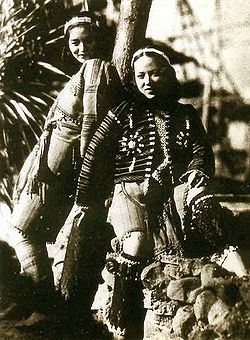- Manchukuo Film Association
-
Manchukuo Film Association Ltd. (満洲映画協会 Manshu Eiga Kyokai, or 満映 (Man'ei)) (Chinese: 株式會社滿洲映畫協會), also known as the "Manchuria Film Production", was a Japanese film production company in Manchukuo in the 1930s and 40s.
Contents
Early history
The Manchukuo Film Association was established on August 14, 1937, as a 50:50 joint venture between the government of Manchukuo and the South Manchurian Railway Company. The original studios were located at a former woolen goods factory, with the offices at the former Jilin Architectural Institute (吉林省建築設計院) in Jilin Province.
Nobusuke Kishi, one of the top officials involved in the industrial development of Manchukuo, enlisted Masahiko Amakasu, head of Manchukuo's Ministry of Civil Affairs, to manage the operation in 1939. Amakasu threw himself wholeheartedly into the project, bringing in a noted architect from Tokyo to remodel the studio design after the German's Universum Film AG studio. Amakasu strove hard to improve the quality of the works produced, traveling to Germany to acquire the latest movie cameras and production techniques, and inviting noted Japanese movie stars, directors and conductors (such as Takashi Asahina) to visit Manchukuo to participate in his productions. His efforts were instrumental in launching the career of the actress and singer Yoshiko Ōtaka, better known as "Ri Kōran".[1]
Man'ei produced a large number of films, falling roughly into three categories: "human drama", "educational" and "documentary". The Japanese government continued to provide financial support, and the Association produced works which spoke as positively about the Manchukuo government as possible.
Separation
In 1945, following the Soviet invasion of Manchukuo, and subsequent chaos surrounding the surrender of Japan, the studio disintegrated. Its equipment was looted by the Soviet Red Army and Masahiko Amakasu committed suicide by taking poison. In August 1945, the Communist Party of China and the Kuomintang fought over the rights to the former company. By April 1946 the Communist Party of China officially took control of the Association, and merged it with the Northeast Film Studio. The collection of the studio was later consolidated into the Changchun Film Studio making it the central point of movie production in the People’s Republic of China.
Legacy
The Manchukuo Film Association is one of the most controversial companies in the history of Chinese cinema, since its works are viewed as propaganda and part of the cultural expansion or cultural invasion of China by Japan.
About half of the Association's film archives were lost to the Soviets in the aftermath of World War II. In May 1995, Japan repurchased the films that were in the lost segment. Initially a Japanese company packaged the films in 30 episodes to be sold in Japan at 300,000 yen. The Chinese government lodged an official complaint about the legitimacy of the matter, since the government of the People's Republic of China claims copyright ownership of any of the former works of Manchukuo, and the films were reproduced without China's consent.[citation needed] Japan agreed to give some works back as compensation.[citation needed] Some are preserved today in China's National Film Archives, others are preserved in the Changchun Film Studio.
See also
References
- Nornes, Abé Mark (1994). Japan/America Film Wars: WWII Propaganda and Its Cultural Contexts. Harwood Academic Publishers. ISBN 3718605627.
- Young, Louise (1999). Japan's Total Empire: Manchuria and the Culture of Wartime Imperialism. University of California Press. ISBN 0520219341.
Notes
- ^ Young, Japan's Total Empire. pp16
Categories:- Chinese film studios
- Manchukuo
- Defunct companies of Japan
Wikimedia Foundation. 2010.


